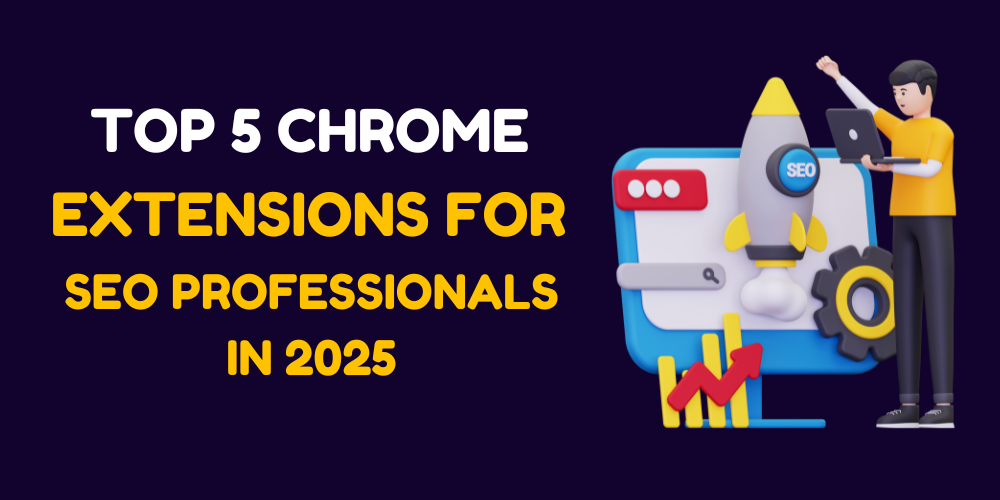On-Page vs. Off-Page SEO: What’s the Difference and Why It Matters
Search Engine Optimization (SEO) is the backbone of digital marketing, helping websites rank higher on search engines like Google. However, SEO isn’t a one-size-fits-all strategy. It’s divided into two main categories: on-page SEO and off-page SEO. Both are essential for improving your website’s visibility, but they serve different purposes and require distinct approaches.
In this blog, we’ll break down the differences between on-page and off-page SEO, explain why they matter, and provide actionable tips to optimize both for better search engine rankings.
What is On-Page SEO?
On-page SEO refers to the optimization efforts you make directly on your website to improve its search engine ranking. It involves optimizing individual pages and their content to make them more relevant to search engines and users.
Key Elements of On-Page SEO
- Keyword Research and Optimization
- Identify relevant keywords your target audience is searching for.
- Use these keywords strategically in your content, titles, meta descriptions, and headers.
- High-Quality Content
- Create valuable, engaging, and original content that answers user queries.
- Ensure your content is well-structured with proper headings (H1, H2, H3) and easy to read.
- Meta Tags
- Write compelling meta titles (under 60 characters) and meta descriptions (under 160 characters) that include target keywords.
- Use alt text for images to improve accessibility and SEO.
- URL Structure
- Use clean, descriptive URLs that include keywords.
- Avoid long, complex URLs with unnecessary parameters.
- Internal Linking
- Link to other relevant pages on your website to improve navigation and distribute link equity.
- Use descriptive anchor text for internal links.
- Mobile-Friendliness
- Ensure your website is responsive and works seamlessly on all devices.
- Google prioritizes mobile-friendly websites in its rankings.
- Page Speed
- Optimize images, enable browser caching, and minimize code to improve loading times.
- Use tools like Google PageSpeed Insights to identify and fix performance issues.
- User Experience (UX)
- Design your website for easy navigation and a positive user experience.
- Reduce bounce rates by keeping visitors engaged with relevant content and clear calls-to-action.
What is Off-Page SEO?
Off-page SEO refers to actions taken outside your website to improve its authority and reputation. It’s about building relationships, earning backlinks, and increasing your website’s visibility across the web.
Key Elements of Off-Page SEO
- Backlink Building
- Earn high-quality backlinks from authoritative websites in your niche.
- Focus on natural link-building strategies like guest blogging, creating shareable content, and partnerships.
- Social Media Marketing
- Promote your content on social media platforms to increase visibility and drive traffic.
- Engage with your audience to build a loyal community and encourage shares.
- Influencer Outreach
- Collaborate with influencers or industry experts to amplify your content and reach a wider audience.
- Influencer endorsements can boost your credibility and attract backlinks.
- Online Reviews and Reputation Management
- Encourage satisfied customers to leave positive reviews on platforms like Google My Business, Yelp, and Trustpilot.
- Address negative feedback promptly to maintain a good online reputation.
- Forum Participation and Q&A Sites
- Engage in relevant forums like Reddit, Quora, and niche-specific communities.
- Provide helpful answers and include links to your website when appropriate.
- Local SEO
- Optimize your Google My Business profile and ensure your NAP (Name, Address, Phone Number) information is consistent across directories.
- Encourage local citations and reviews to improve local search rankings.
- Brand Mentions
- Monitor and track brand mentions across the web.
- Reach out to websites that mention your brand without linking and request a backlink.
Key Differences Between On-Page and Off-Page SEO
| Aspect | On-Page SEO | Off-Page SEO |
| Focus | Optimizing elements on your website | Building authority and reputation externally |
| Control | Full control over on-page elements | Limited control over external factors |
| Examples | Content, meta tags, internal linking | Backlinks, social signals, brand mentions |
| Time Required | Quicker to implement | Takes longer to see results |
| Impact | Improves relevance and user experience | Builds trust and authority |
Why Both On-Page and Off-Page SEO Matter
- Holistic Approach to SEO
- On-page SEO ensures your website is technically sound and user-friendly, while off-page SEO builds trust and authority. Together, they create a well-rounded SEO strategy.
- Improved Search Rankings
- Search engines like Google consider both on-page and off-page factors when ranking websites. Neglecting one can limit your potential to rank higher.
- Better User Experience
- On-page SEO enhances the user experience by making your website faster, easier to navigate, and more informative. Off-page SEO drives traffic and builds credibility, encouraging users to trust your brand.
- Long-Term Results
- While on-page SEO can yield quicker results, off-page SEO builds long-term authority and sustainability. Combining both ensures consistent growth and visibility.
Tips to Optimize On-Page and Off-Page SEO
On-Page SEO Tips
- Conduct regular keyword research to stay updated on trending topics.
- Update old content to keep it relevant and accurate.
- Use schema markup to help search engines understand your content better.
- Optimize for voice search by targeting long-tail keywords and natural language.
Off-Page SEO Tips
- Create link-worthy content like infographics, case studies, and original research.
- Build relationships with industry bloggers and journalists for guest posting opportunities.
- Monitor your backlink profile using tools like Ahrefs or SEMrush to identify and disavow toxic links.
- Leverage social proof by showcasing testimonials, awards, and media mentions on your website.
Conclusion
On-page and off-page SEO are two sides of the same coin. While on-page SEO focuses on optimizing your website’s content and structure, off-page SEO builds your website’s authority and reputation. Both are crucial for improving search engine rankings, driving organic traffic, and achieving long-term success.
By understanding the differences and implementing the right strategies, you can create a balanced SEO approach that maximizes your website’s potential. Start by auditing your current SEO efforts, identifying areas for improvement, and taking actionable steps to optimize both on-page and off-page elements.
Remember, SEO is an ongoing process. Stay updated with the latest trends, algorithms, and best practices to stay ahead of the competition and maintain your search engine visibility.




